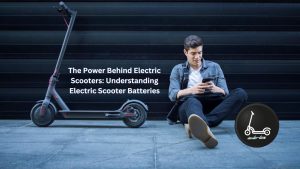In recent years, the urban landscape has witnessed a remarkable transformation in the realm of personal transportation, with electric kick scooters emerging as the frontrunners in the race towards sustainable and convenient mobility.
This trend is reshaping the way people navigate city streets, offering a cleaner and more efficient alternative to traditional modes of transportation.
In this article, we will delve into the world of electric kick scooters, exploring their benefits, challenges, and the impact they have on urban mobility.
The Rise of Electric Kick Scooters
Electric kick scooters, with their compact design and electric-powered engines, have gained immense popularity as an eco-friendly and practical solution for short-distance commuting.
Companies like Bird, Lime, and Spin have revolutionized the industry by providing on-demand scooter-sharing services, making it easier for people to access these convenient modes of transportation.
Benefits of Electric Kick Scooters
- Environmentally Friendly: Electric kick scooters produce zero emissions during operation, making them an eco-conscious choice that contributes to reducing air pollution and carbon footprints in urban areas.
- Last-Mile Connectivity: These scooters are particularly well-suited for covering the last mile of a journey, seamlessly integrating with existing public transportation systems and offering a holistic approach to urban mobility.
- Time and Cost-Efficient: Electric scooters are not only cost-effective but also time-efficient, allowing users to navigate through traffic with ease and avoid the hassle of finding parking spaces.
Challenges and Concerns
- Safety Concerns: The surge in electric scooter usage has raised safety concerns, prompting debates about helmet usage, adherence to traffic rules, and the need for designated scooter lanes to ensure the well-being of riders and pedestrians alike.
- Regulatory Challenges: Many cities are grappling with the regulatory aspects of electric scooter usage, leading to debates on issues such as speed limits, parking regulations, and overall integration with existing transportation infrastructure.
- Scooter Maintenance: Ensuring the proper maintenance of electric scooters is crucial for their long-term viability. Companies need to address issues related to wear and tear, battery life, and the disposal of retired scooters to minimize environmental impact.
The Future of Urban Mobility
As the electric kick scooter industry continues to evolve, it holds the potential to reshape urban mobility significantly.
Collaborations between municipalities, scooter-sharing companies, and citizens are essential to create a harmonious and sustainable transportation ecosystem.
Policymakers need to develop comprehensive regulations that strike a balance between fostering innovation and ensuring the safety and well-being of the community.
Conclusion
Electric kick scooters represent a transformative force in the world of urban transportation, offering a blend of convenience, sustainability, and efficiency.
As cities grapple with the challenges and opportunities presented by this emerging mode of mobility, it is evident that electric scooters are here to stay, playing a pivotal role in the future of how people navigate and connect within urban landscapes.



